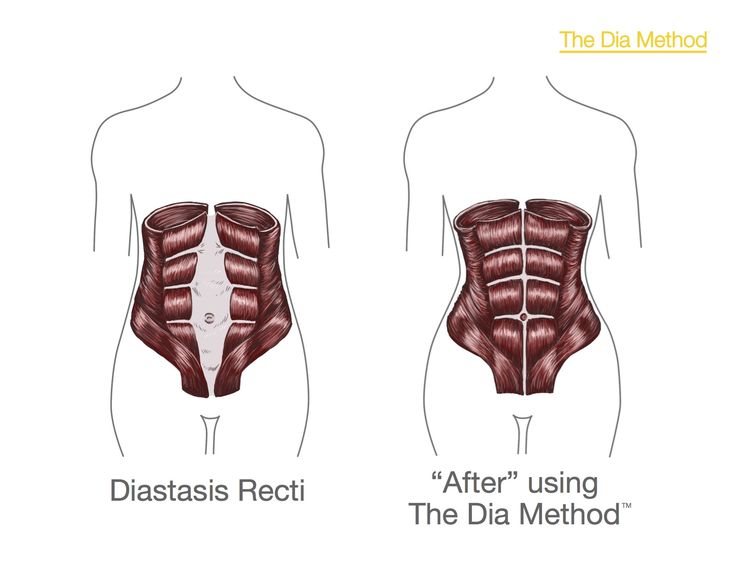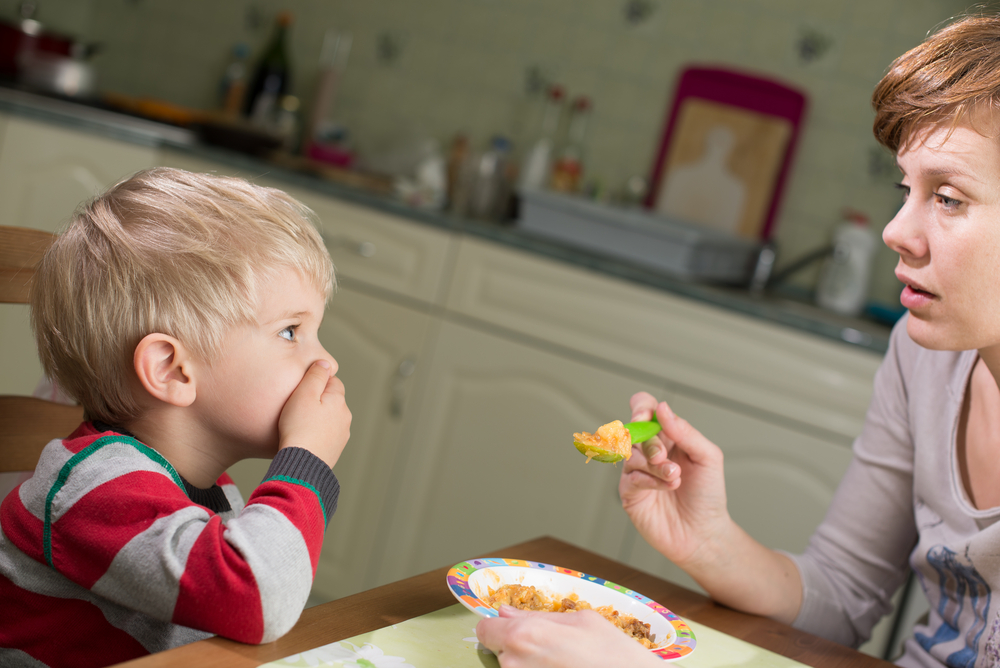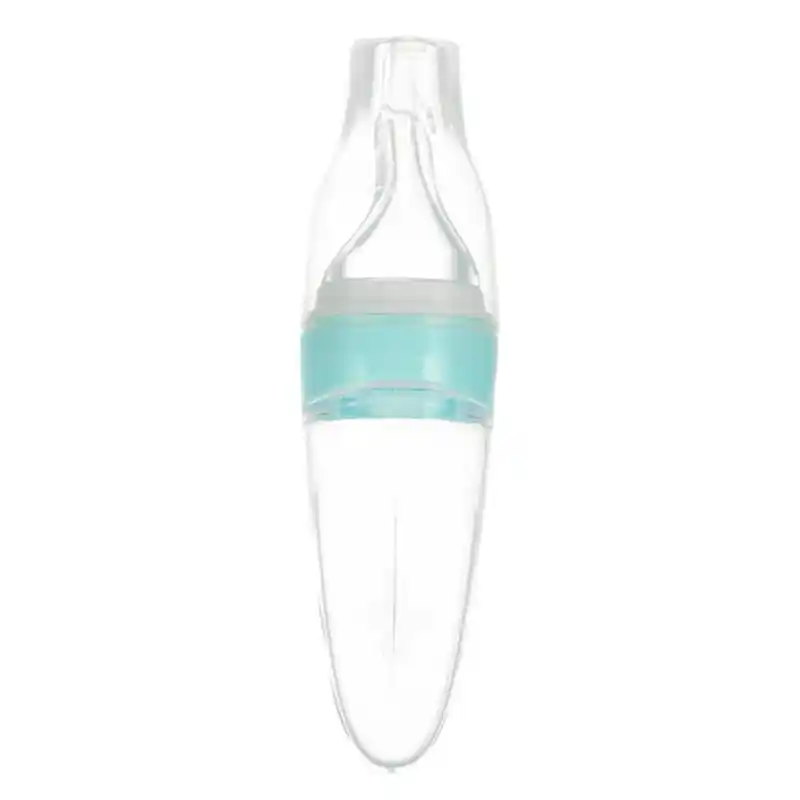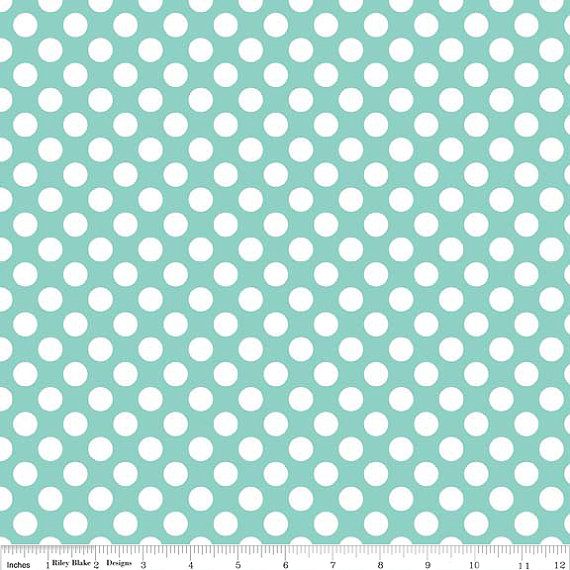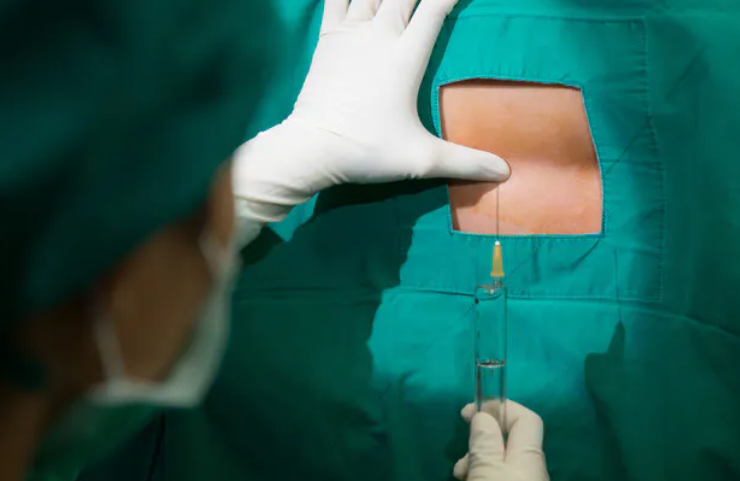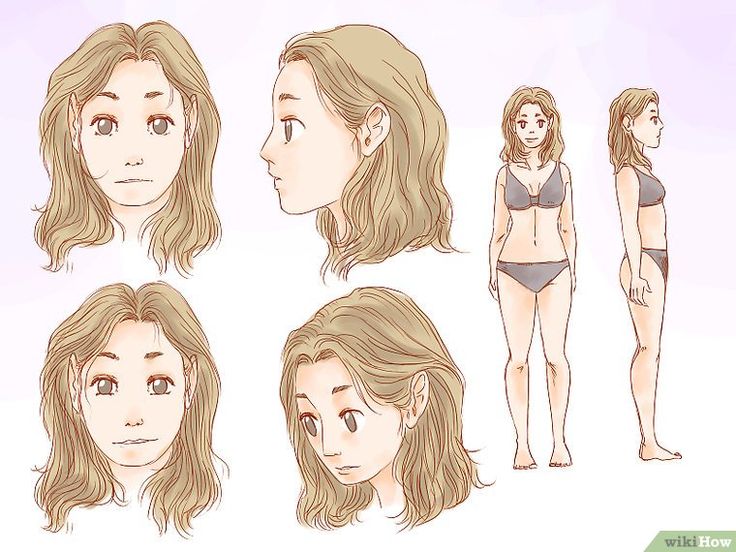Can newborns drink water for hiccups
When Is it Safe to Give an Infant Water for Hiccups?
An infant is being carried by his dad.
Image Credit: Brian McEntire/iStock/Getty Images
Even if your baby's hiccups are driving you to the brink of insanity, they are likely not annoying your infant and are not a life-threatening condition, Healthy Children says. Babies often get hiccups, particularly during feeding times, when their diaphragm goes into a spasm. While hiccups affect people of all ages, not all hiccup remedies are safe for all ages, not even a seemingly harmless swig of water.
Video of the Day
No Water before 6 Months Old
While water often works to cure hiccups in older children and adults, it is not a safe remedy for an early infant's hiccups, notes Dr. Stephen Daniels on Baby Center. In fact, water is not safe for any reason in babies under 6 months old. Water can give your baby a false sense of being full, interfering with her feeding and her body's absorption of nutrients. Water intoxication, although rare, is another hazard, where water dilutes the sodium in a baby's body and sometimes leads to seizures or a coma.
Water Later On
Once your baby hits 6 months old, water is O.K. in small doses, Daniels notes, as a cure for hiccups or in general. Keep the water to small sips, rather than massive gulps, as water can still upset his stomach or bloat it so he doesn't feel hungry and doesn't want to eat. By the time your child hits 1 year old, water is fair game in larger quantities, as long as she is already eating solid foods and drinking milk on her own.
Safe Baby Remedies
Sometimes simply waiting out the hiccups works, Healthy Children says, as they often go away on their own after 10 minutes or so. If they don't, Healthy Children and Mother Nature offer a few remedies that are safe for infants. Holding your baby up against your shoulder and gently patting his back is one method to try. Another is to change the baby's position, get her to relax or try to make her burp.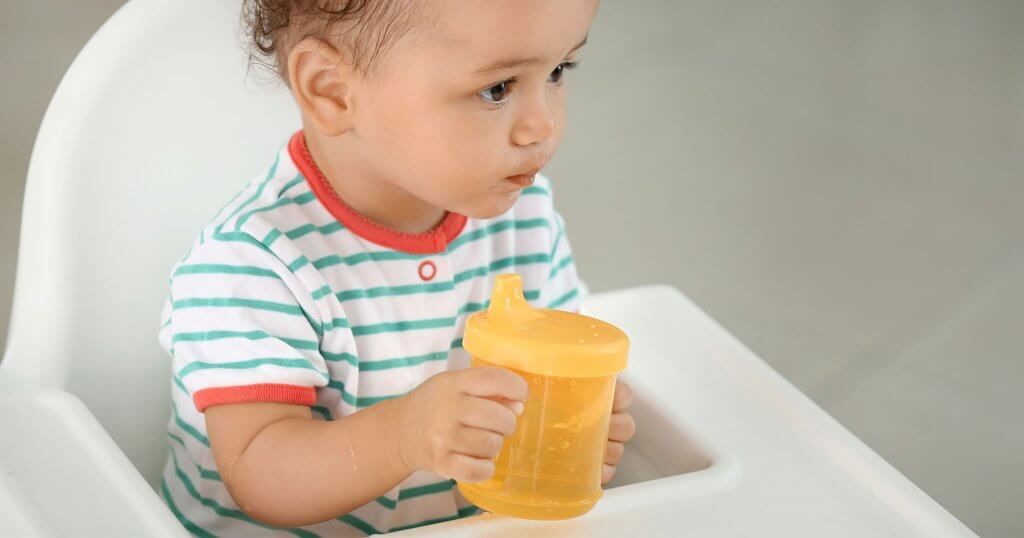 Continuing to feed him, even with the hiccups, often makes them stop.
Continuing to feed him, even with the hiccups, often makes them stop.
Prevention
A few preventative measures help keep hiccups at bay during feeding, Mother Nature and Healthy Children note. Hiccups often crop up if your baby is getting too much air into her stomach, something that happens when the hole on the bottle's nipple is too large. Turn the bottle upside down and make sure the bottle drips freely and then slowly stops, rather than spills all over or does not drip at all. Feeding your baby when she's relaxed, calm and not overly hungry also works as prevention.
Warning
In addition to steering clear of water to cure your young baby's hiccups, also disregard other home or folk remedies that could end up hurting your infant. These include sugar water or sugar cubes; or pepper, anise or other spices or substances that your baby cannot yet handle. Also steer clear of physical remedies that include scaring your baby, startling her with a loud noise or popping balloon, shaking her, pushing in her eyeballs or pulling on her tongue.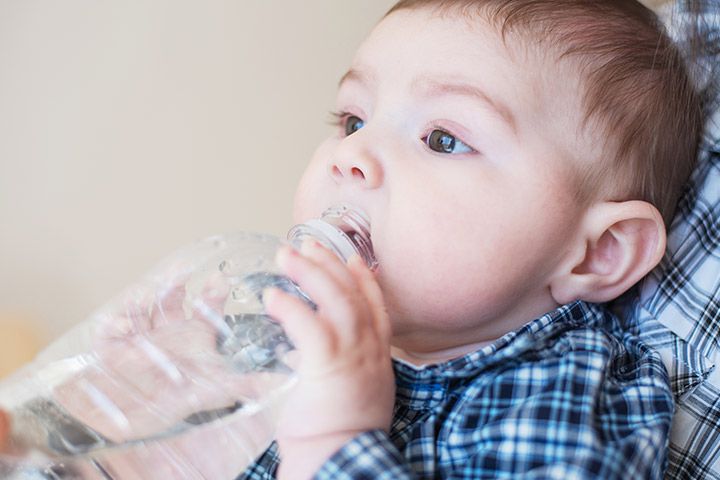
Infant Hiccups - Quick Remedies
Baby hiccups might be adorable, but they can often be a source of worry for new parents. It’s important to know that these infant hiccups are usually harmless and are typically not a sign of bigger health issues. Like in adults, hiccups are an involuntary, sudden contraction of the diaphragm.
When babies swallow air during feeding, it can cause quick contractions of the diaphragm muscle which snaps the opening of the vocal cords shut, making the hic sound. Some babies aren’t disturbed by hiccups and can even sleep through them. However, they can often be a nuisance that interrupts feeding or nap time.
Most hiccups are caused by overfeeding, reflux, or belly distention, so most of the solutions are related to slightly changing how you feed your little one.
NursingIf your baby has a case of hiccups right before feeding, nursing can help calm the diaphragm. Sucking has a soothing effect on your baby, helping her breathe more calmly and relaxing the diaphragm.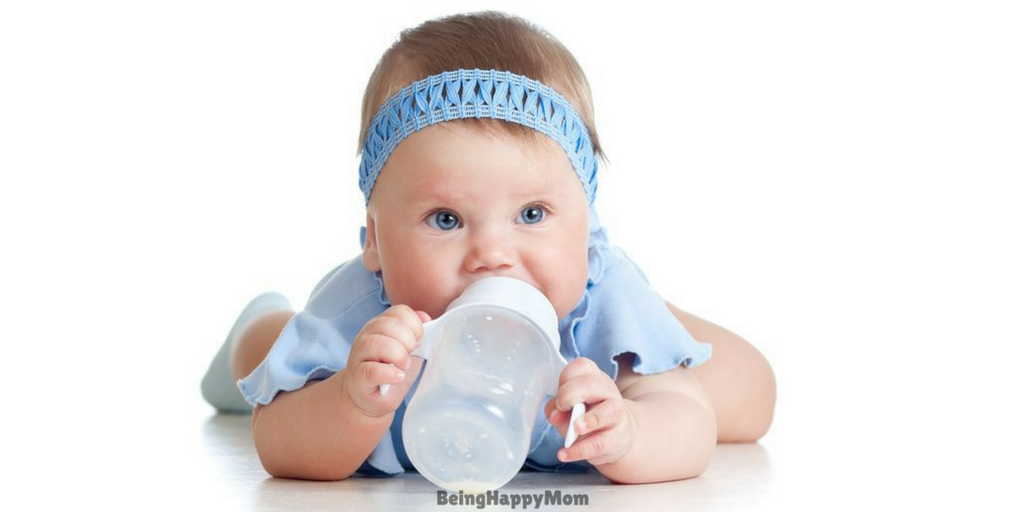
If you hear your baby gulping or swallowing a lot of air while nursing, she will likely get the hiccups.
If you are breastfeeding and you think your baby might be taking in too much air, make sure she is latching well. Have her lips sealed around the whole areola, not just the nipple to prevent her from swallowing too much air.
Bottle feeding can also cause your baby to take in air while feeding. If the nipple hole isn’t large enough on the bottle, she might suck quicker and harder, swallowing more air in the process. Similarly, if the hole is too big, she might be drinking the milk too quickly, filling up her stomach which places pressure on the diaphragm.
Take a Break During FeedingWhether you breastfeed or use a bottle, taking a break during the feeding can help your baby get rid of her hiccups. If you use a bottle, take a break after 2 or 3 ounces. If you breastfeed, take a break when you switch breasts.
During the break, sit your baby upright and burp her or rub her back to help her get rid of the extra gas.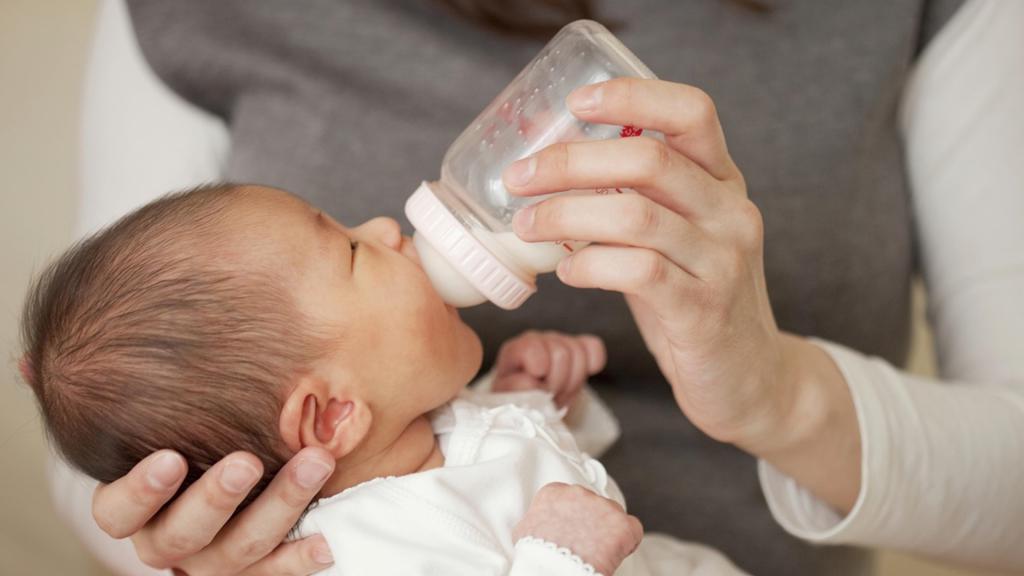 The upright position can ease the pressure on the diaphragm by letting the air rise to the top of the stomach.
The upright position can ease the pressure on the diaphragm by letting the air rise to the top of the stomach.
Feeding your baby less milk more frequently will prevent your baby from overfeeding. When your baby takes in too much milk, too quickly, her belly becomes distended and triggers the diaphragm into the sudden contractions. By slowing down the feeding, you prevent her from getting too full which prevents pressure on the diaphragm.
Offer a PacifierSometimes your baby’s hiccups start on their own. If that’s the case, try offering her a pacifier. The soothing effect of sucking on the pacifier relaxes the diaphragm while helping your baby control her breathing.
Try Gripe WaterIf your baby continues to hiccup for more than ten minutes, try giving her some gripe water. Gripe water is a natural combination of herbs like ginger, fennel, chamomile, or cinnamon which help ease stomach discomfort caused by excess gas or air in the stomach.
If you are looking for natural gripe water, try Mommy’s Bliss Gripe Water. The natural herbal supplement works using ginger and fennel to help expel the extra gas that puts pressure on the diaphragm.
Hiccups and Reflux
Very rarely, infant hiccups could be a sign of gastroesophageal reflux, better known as GER. This brings some of the acids and undigested food back into the esophagus, causing hiccups and discomfort. If you are concerned that your baby’s hiccups are a sign of GER or that they are happening too frequently, mention your concerns to your pediatrician.
Marissa Paysinger
Marissa is a contributing blogger who loves digging into scientific and medical sources to bring you information you can use and trust!
Should I give my child water from a bottle?
Many young mothers are interested in the question - is it necessary to give water to a newborn baby? In this case, the doctor gives a variety of advice - some argue that breastfed babies do not need additional water, others assure the opposite.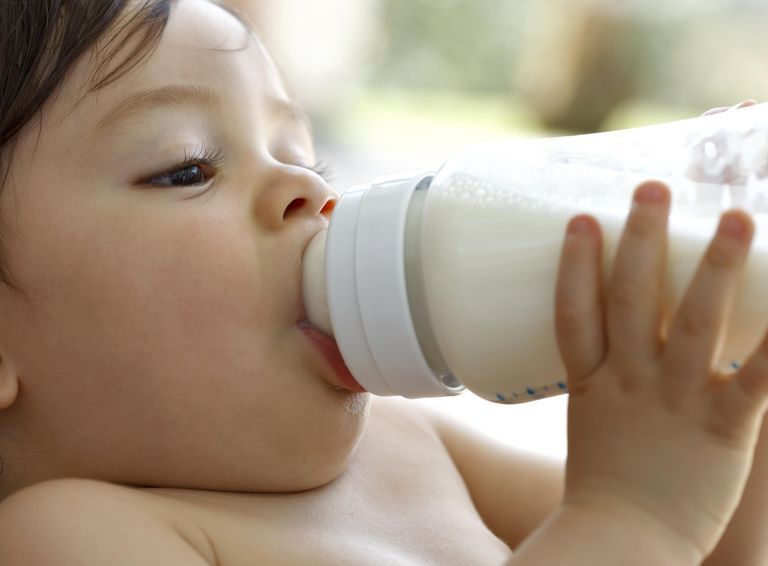 To get an answer to this question, it is necessary to understand in more detail how and when the baby should be watered, and what water can be used for this.
To get an answer to this question, it is necessary to understand in more detail how and when the baby should be watered, and what water can be used for this.
Mother's breast milk, which the child receives from the first days of life, is both food and drink for him - it is known that on 90% it consists of water. Thus, the breastfed baby receives all the amount of fluid he needs. Thanks to special enzymes, mother's milk has a beneficial effect on the digestion process. In addition, the female body is able to independently adapt to the needs of the baby, regulating the composition of breast milk. When the baby needs more liquid, he begins to breastfeed more, thus receiving more foremilk (it is less saturated), which not only quenches thirst well, but also restores electrolyte balance.
If we take into account all of the above, we can decide that the baby does not need ordinary water as a drink at all. But in fact, sometimes it is necessary. However, giving water to a child who is not yet three months old is possible only on the recommendation of a pediatrician.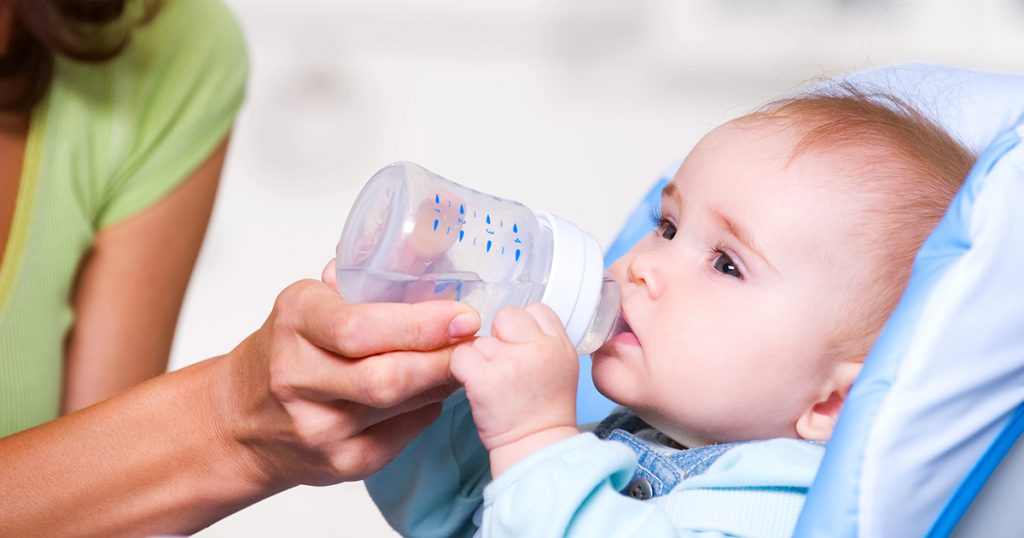 Babies who are already 4 months old can drink water - this will not affect the breastfeeding process in any way. There are absolutely no contraindications to water if the baby drinks it with pleasure. On the contrary, you should be wary of a lack of fluids, which can cause much more harm to the child. We must not forget that newborns have a very fast metabolism, due to which the loss of moisture can be very significant.
Babies who are already 4 months old can drink water - this will not affect the breastfeeding process in any way. There are absolutely no contraindications to water if the baby drinks it with pleasure. On the contrary, you should be wary of a lack of fluids, which can cause much more harm to the child. We must not forget that newborns have a very fast metabolism, due to which the loss of moisture can be very significant.
Water for baby during breastfeeding
You can give your baby water from about 4-5 months. It is best to do this not during feeding, but between them. When the baby feels thirsty, he will gladly drink water from the bottle. As for the norm of fluid for a child, this is a very individual question. As a rule, pediatricians advise giving babies about 100 mg of liquid per 1 kg of body weight, while the liquid includes breast milk. Water in this case will be from 30 to 70 ml.
The baby can drink water from an ordinary bottle with a nipple, you can also use a spoon for this (it will help to accustom the child to complementary foods, which will be needed soon). However, the main rule to remember is that the baby must drink water voluntarily, in no case should he be forced to do so.
However, the main rule to remember is that the baby must drink water voluntarily, in no case should he be forced to do so.
Mixed or formula-fed baby water
Artificial feeding has significant differences from natural feeding. The fact is that infant formula contains much more protein than mother's milk. A formula-fed baby has a special need for extra fluids. If you constantly give him a rich nutrient mixture, this can cause constipation. The additional water received by the baby will improve his well-being and contribute to the normal emptying of the intestines.
If the child is on mixed or artificial feeding, then you can start giving water to him a little earlier - already from 1 or 2 months of life. In this case, the water temperature should be cooler than the temperature of the nutrient mixture. Pediatricians assure that babies who are on artificial or mixed feeding definitely need water.
When can newborns be given water?
You can give your baby a drink immediately after eating.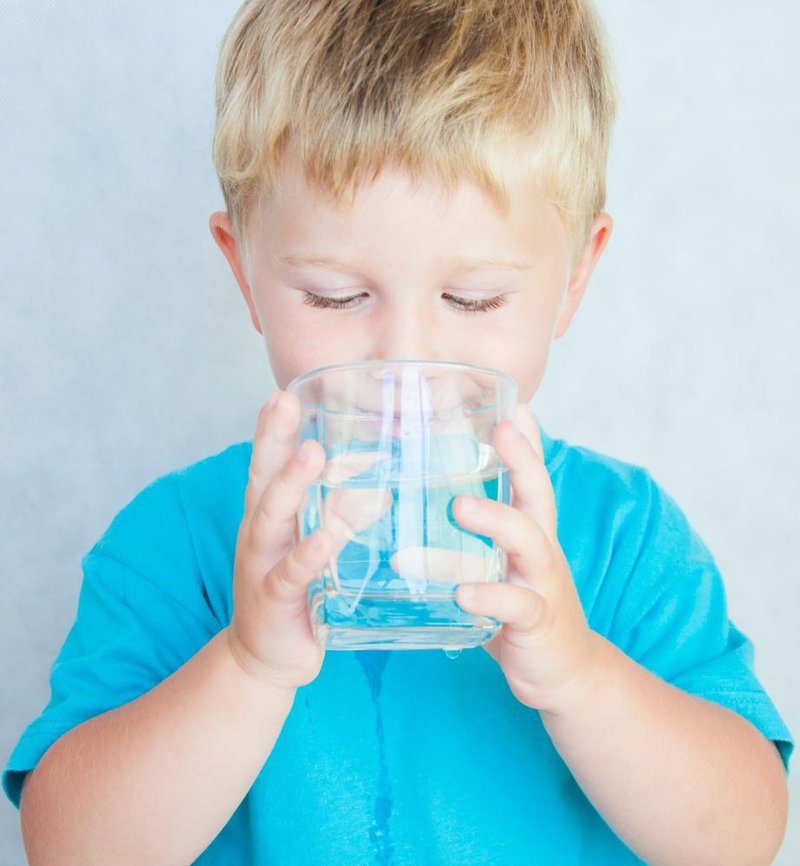 You can also drink it in between feedings. It is important to remember that babies have a very small stomach in volume, and they will not physically be able to drink a lot of water. It is enough to give him 2-3 teaspoons of water. Gradually, this dose can be slightly increased.
You can also drink it in between feedings. It is important to remember that babies have a very small stomach in volume, and they will not physically be able to drink a lot of water. It is enough to give him 2-3 teaspoons of water. Gradually, this dose can be slightly increased.
There are situations in which the need for additional liquid for the baby increases dramatically - for example, when the child has been in a room that is too dry for a long time, or has become slightly overheated. Some parents are too afraid of catching a cold while bathing, and maintain a high temperature in his room - because of this, the humidity in the room decreases, and the baby's body is dehydrated. To prevent this from happening, the air temperature in the baby's room should be maintained at 20 degrees, and the humidity should be between 50 and 70%.
If the air in the room is too dry, the child begins to breathe rapidly, swallowing becomes difficult and colic begins. With overheating, which most often occurs in summer, the baby sweats more, as a result of which the body loses moisture.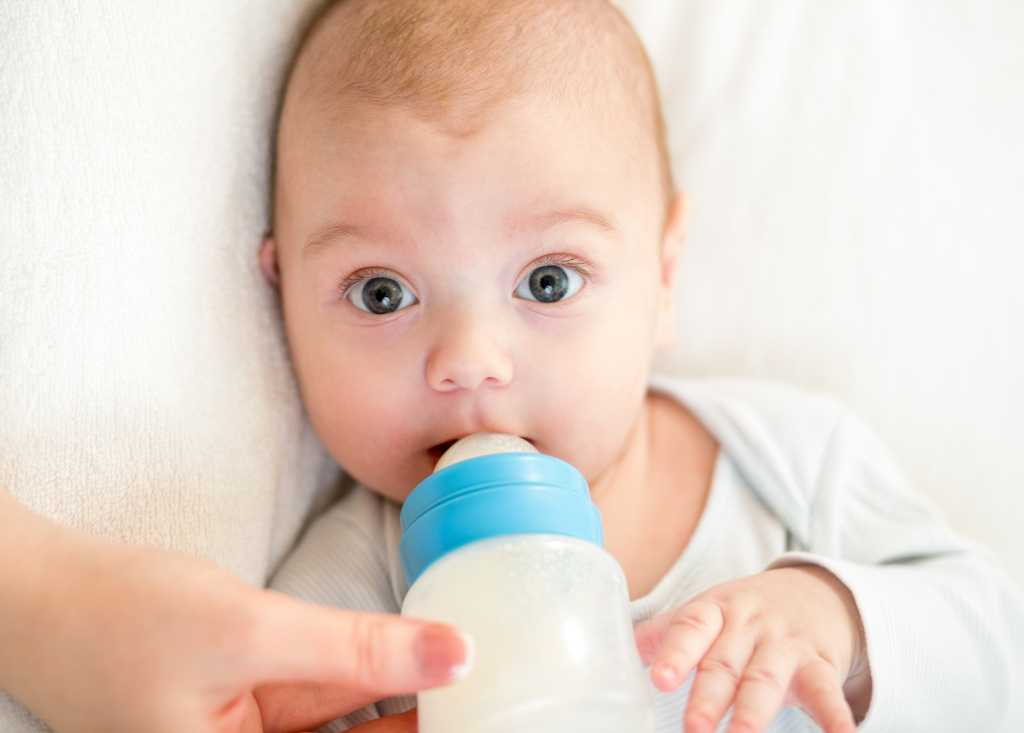 Signs of dehydration can be signs such as dry skin and mucous membranes, as well as infrequent urination. Pediatricians agree that during illness, newborns need to be given water - for example, with colic, or at elevated temperature. The water in this case should be warm.
Signs of dehydration can be signs such as dry skin and mucous membranes, as well as infrequent urination. Pediatricians agree that during illness, newborns need to be given water - for example, with colic, or at elevated temperature. The water in this case should be warm.
The child needs water in such cases:
- at a high temperature - you can give him a little drink from a spoon, and just moisten his lips with water;
- with diarrhea - you need to give the child a little drink, after which it is imperative to show it to the pediatrician;
- when there is fever without temperature - water can be given to the baby in a small amount;
- for constipation - the liquid will help to empty the intestines without discomfort for the child;
- when vomiting - water will prevent dehydration and cleanse the stomach;
- for hiccups - water will relieve spasm of the diaphragm, which happened from hypothermia, and also help to get rid of excess air in the stomach.

What kind of water should a baby drink?
Some parents are sure that only boiled water can be given to babies. Actually it is not. When water is boiled, not all bacteria die in it. And in the composition of such water there are chloride compounds that are extremely harmful to babies. Water obtained from open sources can be no less dangerous, as it contains bacteria from the soil and nitrates. In no case should children be given carbonated or mineral medicinal water with a complex chemical composition. Water purified by home filters is also not suitable for babies.
Where can you get water that will not harm the child? It is best to buy it in a pharmacy. Special water for babies is labeled on the bottle, it contains the optimal amount of minerals for the baby. Water from the pharmacy does not need to be boiled, but after opening it can be stored for no more than a day, and only in the refrigerator. It is best to immediately pour such water into a glass container with a tight-fitting lid.
Which water purification methods can be used for a baby?
The most economical and easiest option to provide your baby with high-quality drinking water is to buy a special "children's" water filter. This can be a jug-type device - it is inexpensive, it is very easy to use such a filter, and the degree of water purification is very high - the device effectively removes chlorine, bacteria, pesticides and particles of mechanical impurities from ordinary tap water. For the manufacture of such filters, only high-quality safe plastic is used, which is approved by pediatricians. Water purified in this way can be used not only for feeding the baby, but also for preparing various decoctions and infant formulas.
Can I give my baby water during hiccups?
What is hiccups? This is an involuntary contraction of the muscles of the diaphragm and larynx. Babies are especially susceptible to hiccups, since their diaphragm muscles are characterized by increased excitability.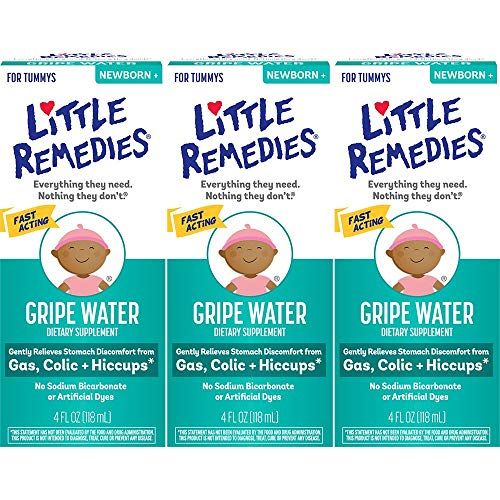 Hypothermia, air entering the stomach, nervous overexcitation and accumulation of gases in the intestines often lead to hiccups.
Hypothermia, air entering the stomach, nervous overexcitation and accumulation of gases in the intestines often lead to hiccups.
As soon as a child has hiccups, you need to immediately eliminate its cause. If the baby is cold, it needs to be warmed up. In order for air to come out of the stomach, the baby should be held in a “column”. A few sips of warm water will also help to cope with hiccups.
It is necessary to give water to a child with hiccups, as this measure will quickly eliminate the cause of discomfort.
If you do everything right and give water to the baby only when he really needs it, then there will be no harm - on the contrary, the child will receive the necessary amount of fluid for the normal functioning of the body.
Information about higher organizations
Ministry of Health of the Russian FederationOfficial portal of the Mayor and the Government of MoscowDepartment of labor and social protection of the population of the city of Moscow: on Mondays from 15.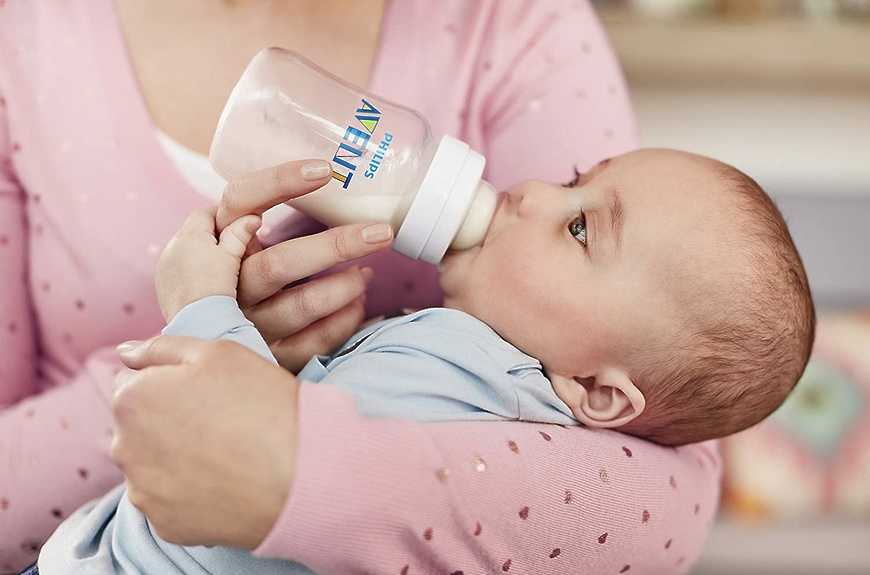 00 to 18.00Department of health of MoscowDepartment of RosZdravNadzor for the city of Moscow and the Moscow region: Mon - Thu: 9:00 - 17:45, Fri: 9:00 - 16:30, Sat - Sun: days off Office of Rospotrebnadzor for the city of MoscowFKU Main Bureau of Medical and Social Expertise for the city of Moscow: Monday, Tuesday, Wednesday, Thursday, Friday from 8.30 to 17.30 .Directorate for coordinating the activities of medical organizations DZMMosvolunter. Responsible person for cooperation with volunteer organizations: Adylov Seyran Midatovich, tel. +7 499-250-01-75
00 to 18.00Department of health of MoscowDepartment of RosZdravNadzor for the city of Moscow and the Moscow region: Mon - Thu: 9:00 - 17:45, Fri: 9:00 - 16:30, Sat - Sun: days off Office of Rospotrebnadzor for the city of MoscowFKU Main Bureau of Medical and Social Expertise for the city of Moscow: Monday, Tuesday, Wednesday, Thursday, Friday from 8.30 to 17.30 .Directorate for coordinating the activities of medical organizations DZMMosvolunter. Responsible person for cooperation with volunteer organizations: Adylov Seyran Midatovich, tel. +7 499-250-01-75
Information for the public
Assessment of the quality of servicesIndependent assessment of the quality of services provided by medical organizationsQuestionnaire for assessing the quality of services provided by medical organizations on an outpatient basisDrugsCrowdsourcing projects of the Government of MoscowAmbulance and Emergency Medical Service in the City of MoscowAssistance Center for Medical WorkersMoscow City Compulsory Medical Insurance FundInsurance companiesFederal budgetary healthcare institution " Center for Hygiene and Epidemiology in Moscow "Official resource of the Healthy Russia program. " Order of the Ministry of Health of the Russian Federation dated August 10, 2017 N 514n "List of studies during preventive medical examinations of minors" List of drugs dispensed free of charge and with a 50% discount List of categories of citizens persons entitled to receive state social assistanceOn the list of documents required for issuing prescriptionsOn the list of pharmacy organizations for the disabled
" Order of the Ministry of Health of the Russian Federation dated August 10, 2017 N 514n "List of studies during preventive medical examinations of minors" List of drugs dispensed free of charge and with a 50% discount List of categories of citizens persons entitled to receive state social assistanceOn the list of documents required for issuing prescriptionsOn the list of pharmacy organizations for the disabled
Ask a question to the Chief Physician!
Appointment.
whether to supplement the baby with breastfeeding and artificial feeding, how much water a child can drink
The birth of a baby always involves a lot of questions from parents. Some of them are, of course, related to proper nutrition. And almost always, the first thing moms ask is whether it is necessary to give water during breastfeeding. Will it harm digestion and stool? And if supplemented, then with what water, how often and from what? Let's take a look at all the nuances in order.
Contents: Hide
- When a baby needs water
- What are the dangers of drinking water early
- General advice on supplementation
When a baby needs water
he is breastfed, with normal assimilation of mother's milk and regular weight gain, water is not required.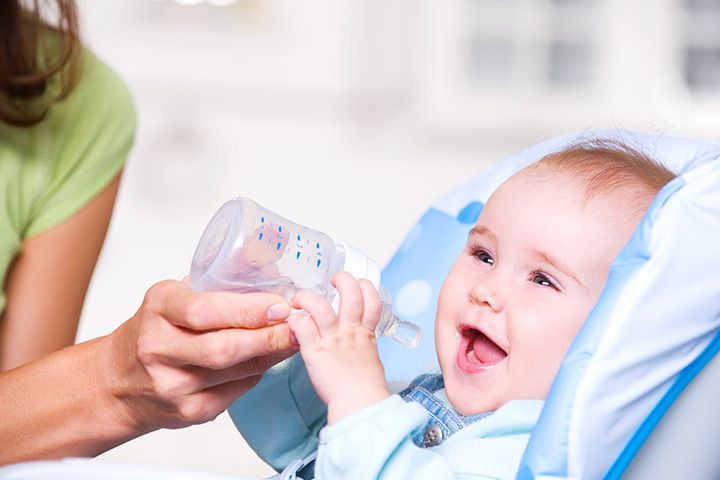 Mother's milk quenches thirst and protects against dehydration. However, there are doctors who express a different opinion from this. So, when should you supplement your newborn?
Mother's milk quenches thirst and protects against dehydration. However, there are doctors who express a different opinion from this. So, when should you supplement your newborn?
• With artificial and mixed feeding. Mixtures, even as close as possible in composition to mother's milk, are absorbed longer, and water helps their absorption. Therefore, the use of water in this case is mandatory.
• When breastfeeding with insufficient lactation. Unfortunately, it happens that the mother's milk is not enough for the baby. If the baby cries often, does not gain weight, supplement the baby with water and immediately contact the pediatrician about mixed feeding or a complete transition to the mixture.
• In hot weather. When it's hot, fluid leaves the body much faster, and feeding a child with milk all the time means forcing him to overeat. Water in this case is your salvation.
• For hiccups. As you know, water helps to cope with hiccups. This is true not only for an adult, but also for a baby.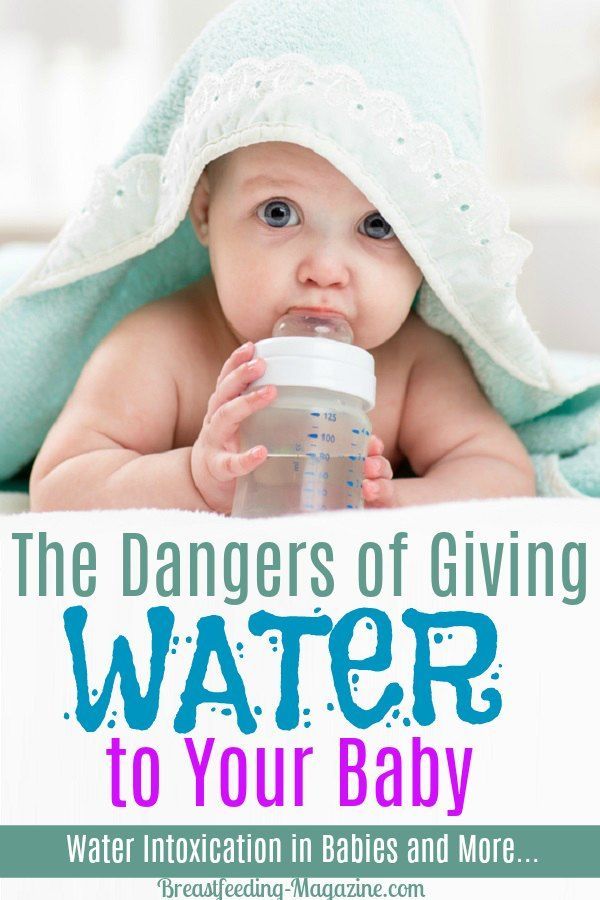
• For vomiting and diarrhea. They wash fluid out of the child's body, which threatens with dehydration. If you experience these problems, give your baby as much water as possible.
• To bring down high temperatures. If the baby is sick, his temperature has jumped, then the first advice given by all doctors, without exception, is to drink as much as possible. Milk at a high temperature is contraindicated, only fermented milk products are allowed. Therefore, the best way out for mommy will be to give the child some water.
• When the child is older than two months. If a newborn can only get by with mother's milk, then the baby is a little older - no longer. The body grows, as do its needs. Many pediatricians from 2.5 months already recommend to supplement the baby not only with water, but also with dried fruit compotes.
IMPORTANT! Irina Vostrikova, a pediatrician at the MEDSI clinic, believes that babies do not need additional water, because breast milk is already 90% water.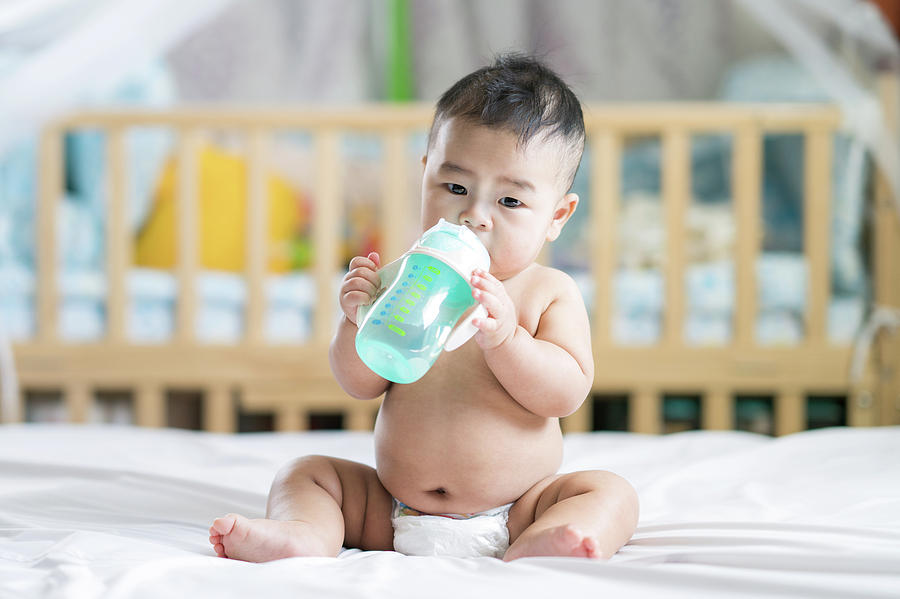 However, this may be necessary if the mother herself does not drink enough fluids. So, a nursing mother should drink at least 2 liters of ordinary non-carbonated water per day.
However, this may be necessary if the mother herself does not drink enough fluids. So, a nursing mother should drink at least 2 liters of ordinary non-carbonated water per day.
In hot weather, the baby can be offered water between feedings in a volume of 10-15 ml: if the baby refuses, then now he does not need additional liquid. The same recommendations are valid for artificial feeding. It is better to give water to the child with a spoon, and not from a bottle. Because when feeding from a bottle, the baby has a "sucking confusion", and he begins to take the breast incorrectly - because of this, the effectiveness of stimulating milk production is reduced, and the nipples are injured.
What dangers can be with early water intake
Many mothers are surprised when they hear about the ban on giving water to their babies. What problems in a newborn can cause frequent water intake?
• Malnutrition. If you give your baby water shortly before feeding, the liquid will take place in the baby's stomach, and he will eat less milk.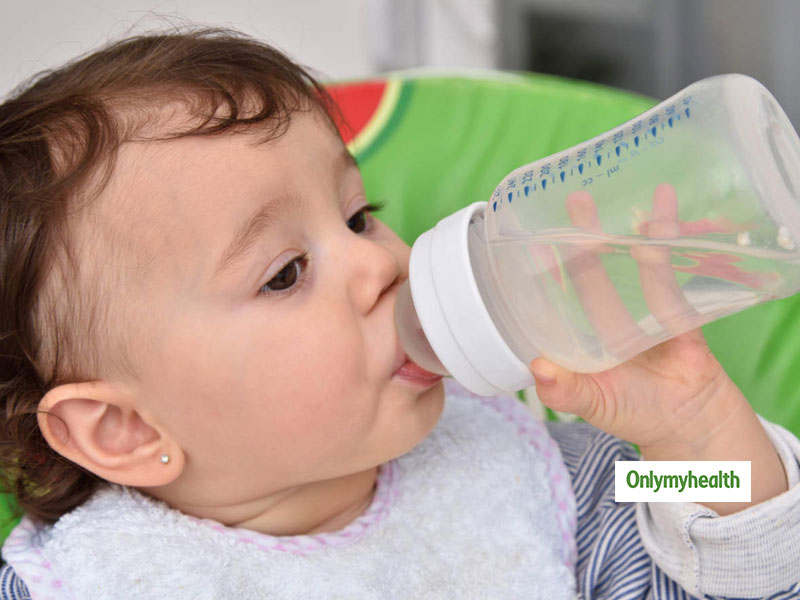 As a result, the baby will remain hungry, his body will receive fewer nutrients, and the mother will not empty the mammary glands, which threatens to stagnate milk and reduce lactation.
As a result, the baby will remain hungry, his body will receive fewer nutrients, and the mother will not empty the mammary glands, which threatens to stagnate milk and reduce lactation.
• Violation of the intestinal microflora. The use of water leads to the appearance in the body of a newborn of the first bacteria, which are not always beneficial. This is a load on the intestines, the likelihood of developing dysbacteriosis.
• Load on the kidneys. The introduction of water into the diet makes the kidneys work more intensively, and the body of a newborn baby may not be ready for this.
IMPORTANT! Elena Shmakova, consultant on breastfeeding and baby care at the Lada Center, teacher of the WHO/UNICEF course "Counseling on Breastfeeding", adds that there is a risk to breastfeeding itself when supplementing. The fact is that milk is produced in response to sucking, and its amount directly depends on the frequency of breast stimulation. If you give your baby water to drink, he will suckle less often and less, which means that the stimulation of the mammary glands will decrease.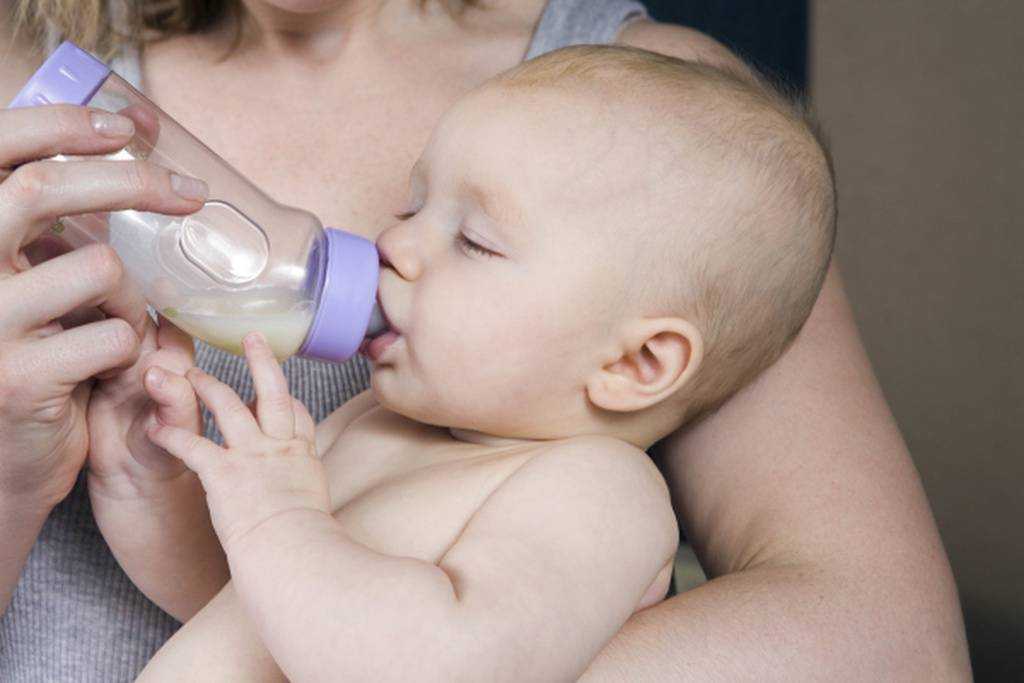
She is sure that the baby should be supplemented only when breastfeeding does not help with the dehydration of the baby due to malaise. Dehydration can be detected, for example, when the number of urination is less than 6 per day, while the urine is concentrated, dark, it is less than usual.
Read also: Is it possible to give children mineral water
General recommendations for supplementation
baby.
• Only purified water should be given. The best option would be to buy bottled water. Today in stores you can find bottles of water intended for children: it has gone through all possible purifications and is devoid of harmful bacteria. It is also possible to use well water at home, which has passed through special children's filters. Avoid using tap water, even filtered.
• Use only boiled water. By doing this, you significantly reduce the risk of crumbs of harmful bacteria entering the body (almost all of them die when boiled).
• If possible, use silverware.
